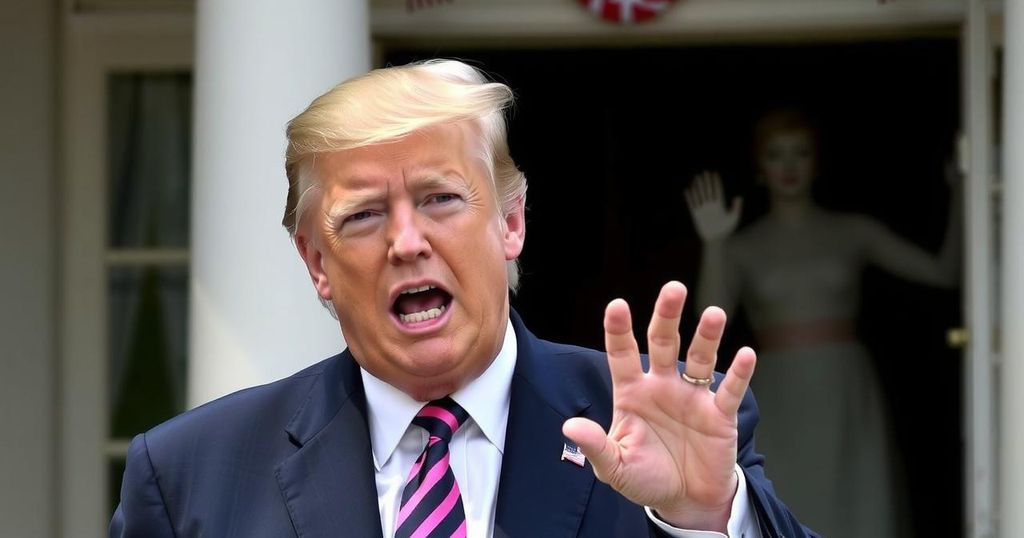President-elect Donald Trump warned of severe consequences for Hamas if a hostage deal is not reached before his inauguration. Steve Witkoff indicated that negotiations are ongoing with the Biden administration, while Gaza faces increasing casualties. Ireland has joined a genocide case against Israel, and the UN agency aiding refugees in the region is threatened by new Israeli laws.
During a recent news conference, President-elect Donald Trump warned that if a hostage deal for the release of Israeli captives held by Hamas is not achieved by his inauguration on January 20, 2025, it would result in significant repercussions for the militant group. Steve Witkoff, Trump’s appointed Middle East envoy, confirmed he is collaborating with the Biden administration, stating they are on the brink of an agreement and will return to Doha, Qatar, soon to continue discussions.
In parallel developments, the situation in Gaza remains dire, with recent reports indicating that 31 individuals were killed in the past day, raising the overall death toll to 45,885 since hostilities escalated on October 7, 2023. The Israeli Defense Forces also conducted airstrikes targeting Hamas militants in Khan Younis due to their involvement in the initial attacks on Israel.
Furthermore, international responses to the conflict have intensified, with Ireland joining a genocide case against Israel at the International Court of Justice. This case, initiated by South Africa, accuses Israel of committing genocidal acts against Palestinians, and several other nations have joined in solidarity. Concerns are growing regarding the future of the United Nations Relief and Works Agency (UNRWA) as new Israeli laws threaten its operations in the West Bank and Gaza Strip, potentially undermining vital services provided to over 900,000 registered refugees.
The ongoing Israel-Gaza conflict has escalated significantly, particularly after Hamas’s unprecedented attack on Israel on October 7, 2023, resulting in widespread violence and humanitarian crises. The complexities of the situation involve hostage negotiations, international legal actions against Israel, and the precarious position of humanitarian organizations in the region. The roles of U.S. administrations continue to play a pivotal part in shaping diplomatic efforts and aid strategies amidst the conflicts, signaling a critical juncture in Middle Eastern geopolitics.
In summary, the urgency surrounding the hostage negotiations highlights the precarious nature of the Israel-Hamas conflict, with increasing casualties complicating humanitarian efforts. The legal challenges against Israel in international courts and impending restrictions on UNRWA operations underscore the multifaceted challenges facing Palestinians. As the new U.S. administration prepares to take office, its approach to the ongoing crisis will be critical in determining the future of peace negotiations and humanitarian support in the region.
Original Source: www.washingtonpost.com






